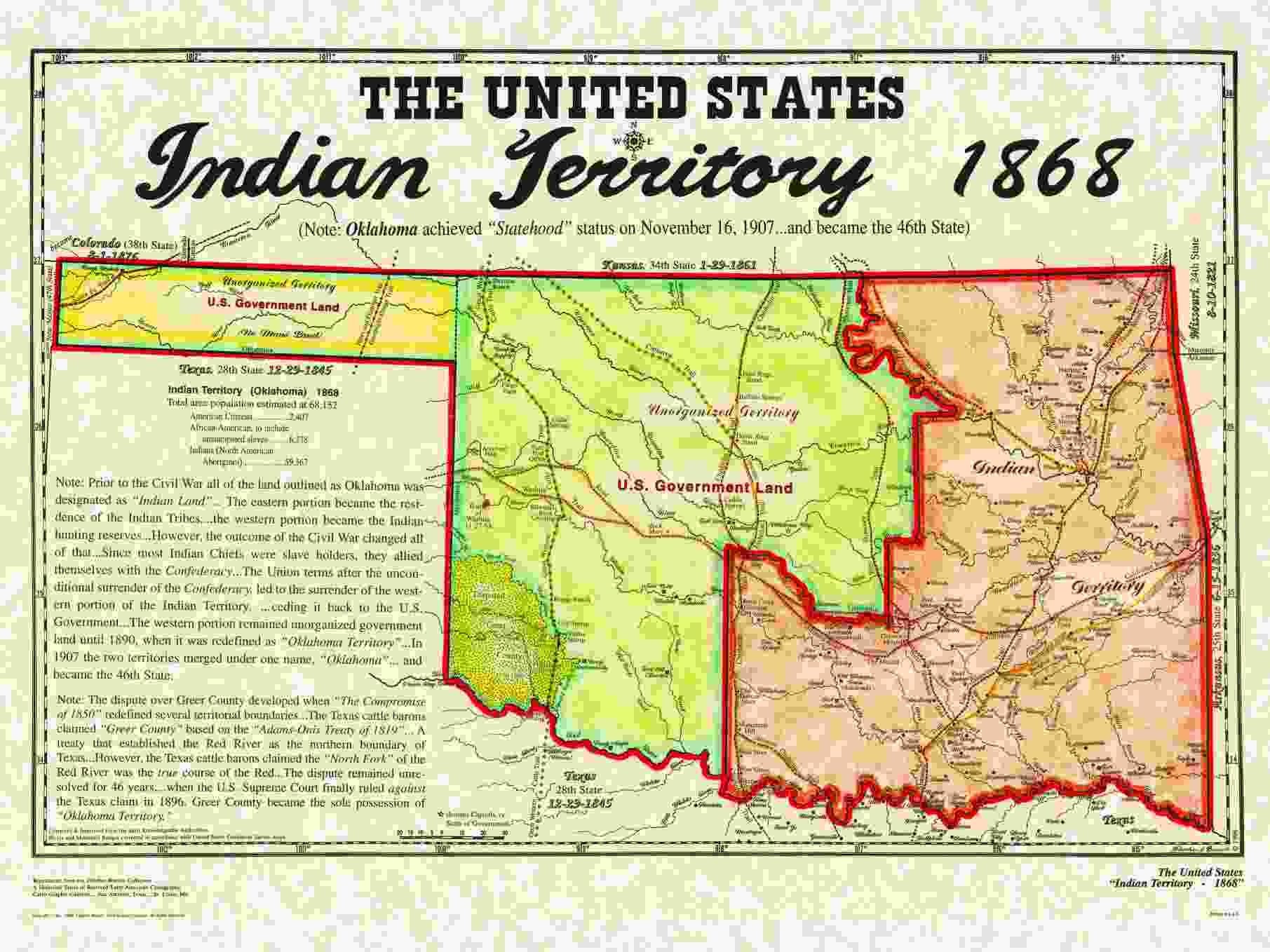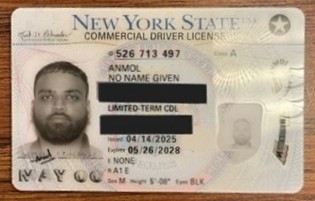Pictured: OK and Indian Territory
Oklahoma History Lesson: Oklahoma Territory
By Steve Byas
Oklahoma Territory was created because of the April 22, 1889, land run, out of the “unassigned lands,” lands in the middle of what is now Oklahoma, lands that did not belong to any particular Indian tribe.No official government existed in Oklahoma until May of 1890, when Congress passed the Organic Act. This law also gave us the “panhandle,” because no one else really wanted it. Before that time citizens established temporary governments, with mayors, marshals, arbitrating committees, and school boards. Schools were supported by “subscriptions,” what they called tuition.
In Guthrie, which became the capital of the territory, three men pooled $8.31 and opened a bank. Henry Ives dug a hole in his lot, and opened a ten-cent “restroom.”
Unofficial surveys in Guthrie and in Oklahoma City were later accepted as legal. Reno Avenue in Oklahoma City was created on the first day of the first land run.
But there was chaos in Oklahoma City, and the Seminole Land Company essentially controlled the town government in the early days. Furniture dealers sold caskets on the side. Town dwellers often had gardens, but farmers would come to town to sell eggs, butter, and produce. While there, they would visit the stores and pick up goods with the money they had collected. But even town dwellers often had a barn, with a cow, and maybe a horse. Chicken houses were common in town. Those who were still up after dark usually used coal oil lamps.
On Sunday, stores closed, and the churches opened. Most preferred the more informal churches, like the Baptist, the Methodist, and the Christian churches (Disciples of Christ). Those of German ancestry usually worshiped at either a Lutheran or Mennonite congregation, while Norman was the territorial strong hold of the Catholic Church. There were also a few “free thinkers,” like the Unitarians.
Entertainment in the early days consisted of watermelon feasts, music (with the fiddle and the banjo very common) spelling bees, plays and box suppers. The box suppers were usually to raise money for various things, and a young man would make a bid on a girl’s box supper because then he got to eat with the young woman. Often, this led to marriage.
It was certainly not life like in Oklahoma today, but it was the foundation for the state we would become.
Steve Byas, editor of the Oklahoma Constitution, teaches Oklahoma History at Randall University, in Moore, Oklahoma.










Latest Commentary
Thursday 30th of October 2025
Thursday 30th of October 2025
Thursday 30th of October 2025
Thursday 30th of October 2025
Thursday 30th of October 2025
Thursday 30th of October 2025
Thursday 30th of October 2025
Thursday 30th of October 2025
Thursday 30th of October 2025